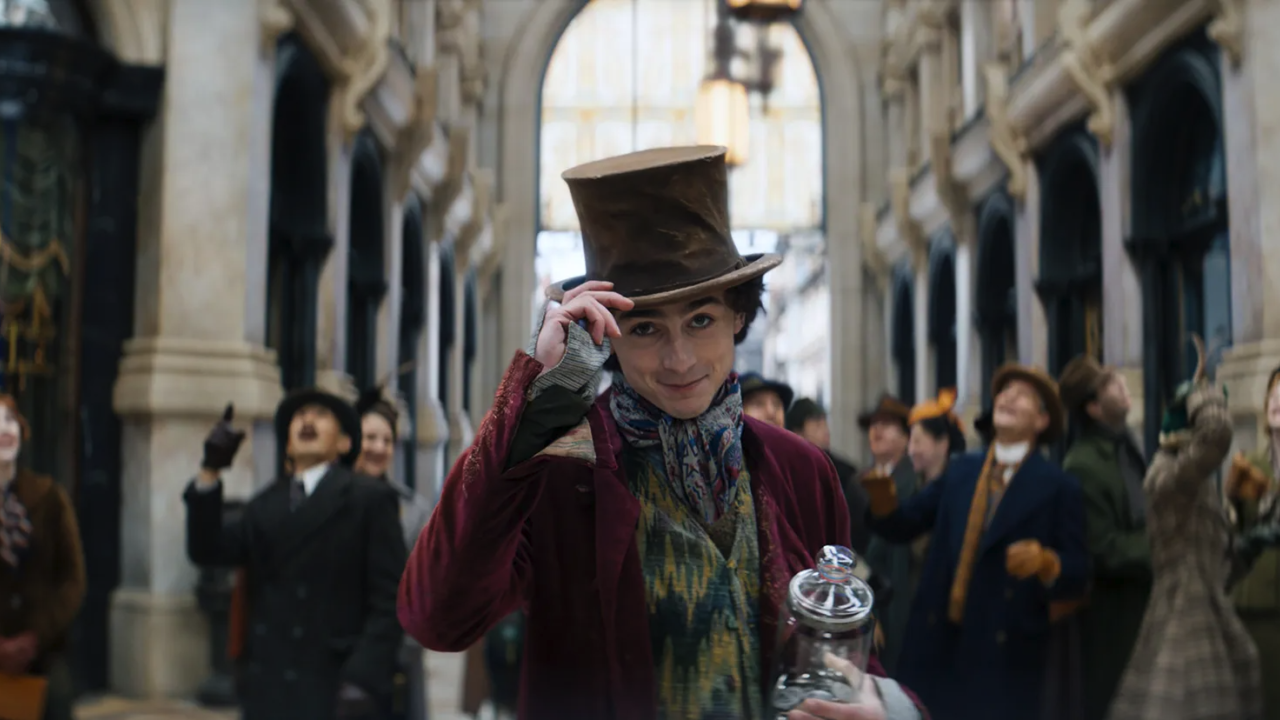Wonka: An Unexpected Chance to Teach about Human Trafficking
Labor Trafficking
Wonka, the blockbuster hit that won the box office this past holiday season, reveals itself to be a surprising opportunity to talk and educate about the realities of human trafficking.
The new film starring Timothée Chalamet lays out the story of how the world-renowned Willy Wonka became a master of making chocolate. The movie is creative, visually delightful, family-friendly, but also unexpectedly captures elements of what nearly 28 million people around the world fall captive to.
At IJM, we frequently get questions from parents and educators about how to talk about human trafficking to youth. Trafficking is a crime that is violent and by nature can be challenging to approach in an age-appropriate way. Discussion around a PG-rated film like Wonka can lead to approachable conversations that touch on the themes of human trafficking and bring empathy and awareness towards this issue.
Wonka's plotline portrays examples of three common attributes of human trafficking:
1) Being tricked:
Wonka was deceived into signing a contract because he was illiterate and relied on the other party's word that the contract reflected their verbal agreement. For many of the cases that IJM encounters, victims are in similar situations where they agree to a false verbal contract, cannot read the contract language, or simply cannot read.
2) Being trapped:
After he unknowingly signed away his freedom, Wonka and his friends were confined and unable to leave the basement of a laundromat. If they didn't work, they faced punishments of isolation or having food withheld. Many survivors of trafficking we serve similarly recount stories of long hours, meager rations, and brutal punishments if production quotas weren't met.
3) Being held by false debt:
Wonka took out a loan, only to find out later that he owed ten thousand times what he initially agreed to. It is a debt that only the lender knows the balance of and it is structured so that he will never be able to pay it off. This is a form of bonded labor, a tactic that is frequently employed in South Asia to enslave families for generations.
The human trafficking in Wonka is easily missed
A common misperception about human trafficking is that it only refers to sex trafficking, when in fact the majority of trafficking is comprised of forced labor. Forced labor is any type of work or service where an individual is exploited by force, fraud, or coercion.
Movie critics mostly referred to this part of the plotline as "indentured servitude", which for most people is a phrase associated with history books - a past problem of society that has already been resolved. To call it out as human trafficking as one critic did feels much more jarring and can even lead to confusion because of how misaligned it is with our cultural idea of what trafficking looks like.
I was not expecting #Wonka to be the most realistic movie about human trafficking opening in wide theatrical release this year. Not a criticism, but also not a joke. pic.twitter.com/j41WIdujzc
— Scott Mendelson (@ScottMendelson) November 28, 2023
January is Human Trafficking Awareness Month
The elements of Wonka’s drama are not confined to the four corners of a screen, but instead it is the story of nearly 28 million individuals around the world. Just like Wonka, many people pursue opportunities to have a better life, relying on the good of others, only to find themselves manipulated and stuck, with no one to help them.
In a cinematic world of pure imagination, there are countless lessons to learn. Human trafficking may seem like a far-off problem or an uncomfortable topic to discuss, but watching and discussing Wonka can create a space for conversation and learning for all ages.
Photo credit: Warner Bros